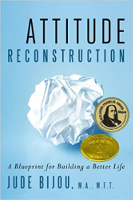
Image by ACWells
Are you thrown off by unforeseen complications? Are you frantic to meet deadlines or goals? Do you hate to wait? Are you a slave to the clock? Do you lose it when your computer IT guy takes too long to diagnose and fix a problem? Do you find yourself annoyed when drivers go too slow? Are you unable to sit or stand still?
Well, the price you pay is huge.
First and foremost, your hurried pace and unease rob you of the ability to savor the moment. Consequently you rarely feel at peace.
Second, you don't accept that some things unfold in a time frame that is not in your control.
Third, your controlling behavior pushes other people away.
Fourth, you lose your connection with people or situations choosing to get consumed by your own frustration, anxiety, and myopic reality.
If we're impatient it's usually the case that one of our early caretakers (aka parents) had the "impatience gene" that we inherited. Impatience is a fear-anger attitude. We're freaked out and are controlled by time. As well, we feel angry because we have unrealistic expectations about how long a given activity "should" take and feel upset when it inevitably takes longer than we planned.
How to Deal with Your Impatience
If you're tired of your impatience and the havoc it is wreaking within yourself and with those around you, there is a remedy. Give it up. Turn it over. Accept that things go at a different pace than you'd choose if you ran the world. Surrender.
When you begin to feel that familiar antsiness, the first thing to do is pause, step back and take a few measured breaths, while repeating, "Stop. Breathe. Relax."
Though you might feel like you'd rather die than give up your need for things to go at your pace, it's worth the effort. As I mentioned, the underlying emotions behind impatience are fear and anger. To dispel the fear you need to move the pure energy out of your body. As silly as it sounds, shiver and quiver. Tremble like a dog at the vet. Up the spine. Out your arms, legs, and hands. Do it hard, fast and with abandon for literally 90 seconds or until you start laughing. If you practice this whenever you feel impatient, you will notice a feeling of calm overtaking your body.
After moving the physical energy by shivering, it's important to think constructive thoughts about the situation, such as:
* Everything is all right.
* Everything will be okay.
* This isn't life or death.
* Life goes at a different pace than I'd like.
* Enjoy the moment right now.
* Let go.
To deal with your anger, excuse yourself, move to a secure location, and push against a wall, growl into a pillow, or stomp your feet to release the hot anger energy. If this isn't your thing, or after you move the anger energy, try repeating to yourself over and over, "People and things are the way they are, not the way I want them to be."
What to Do Instead of Getting Impatient
Focusing on the reality, that life will not end if a task takes more time than you'd like, will bring you to a more centered moment. You'll gradually lose the belief that getting there is the most important thing in the world. Then you will be able to look within, and make another choice instead of exhibiting your impatience. You'll be in a better position to restore perspective and find the constructive thing to say and do from a calmer space.
Maybe the best thing to do while pausing is to relish that you are alive right now and fortunate to be so. Or try repeating a constructive thought. Maybe enjoy the scenery. Maybe hum a tune. Maybe try taking some deep breaths.
In terms of taking action, possibly you need speak up lovingly. For instance, instead of ignoring what someone is telling you and driving off, say "I need to be at work right now, and I'll give you a call later this morning after my meeting to talk about what you're telling me." Possibly you need to adjust the plans you made. If you decide to speak up, whatever you say, make sure it's NOT something snarky or critical about them, but something about yourself -- your "I".
The Benefits -- More Peace and Harmony
The benefits of getting the upper hand over impatience are that you avoid feeling disconnected with friends and family. In addition, others will feel more comfortable around you. You'll enjoy your environment more and have time to smell the roses. Furthermore, you'll be able to maintain a healthier perspective about what is really important. You will feel more love and peace as you come to realize you're not the center of the universe and that people and things move at their own pace.
When we hold on to our belief about how things should be unfolding, we're apt to miss out on enjoying the present moment. It's much better to appreciate what today or this moment offers, rather than trying to engineer a certain future outcome. Life's too fragile. Count your blessings.
* * * * *
Hey Jude!
I get so impatient when my wife over-researches any decision we have to make. How can I work on not getting so frustrated?
It's wonderful you're looking at your half of the relationship to break the cycle rather than insisting your wife is the problem. Observe how your impatience usually plays out. When you are tempted to react to your wife's need to know "everything", determine a constructive opposite to your impatience. Accept that she feels more comfortable with all the facts. Try a substitute such as taking a deep breath or reminding yourself, "This won't matter a year from now," or "I don't like that she takes so much time to gather information, but I like the final decisions we make."
Not being impatient takes some time, so cut yourself some slack when you relapse. Tell your wife you're trying to change your negative reactions and genuinely thank her when she acts more spontaneously. You'll experience copious personal rewards and maybe even inspire her to make some changes herself.
©2022 by Jude Bijou, M.A., M.F.T.
All Rights Reserved.
Book by this Author:
Attitude Reconstruction
Attitude Reconstruction: A Blueprint for Building a Better Life
by Jude Bijou, M.A., M.F.T.
 With practical tools and real-life examples, this book can help you stop settling for sadness, anger, and fear, and infuse your life with joy, love, and peace. Jude Bijou's comprehensive blueprint will teach you to: ? cope with family members' unsolicited advice, cure indecision with your intuition, deal with fear by expressing it physically, create closeness by truly talking and listening, improve your social life, increase staff morale in just five minutes a day, handle sarcasm by visualizing it flying by, carve out more time for yourself by clarifying your priorities, ask for a raise and get it, stop fighting via two easy steps, cure kids' tantrums constructively. You can integrate Attitude Reconstruction into your daily routine, regardless of your spiritual path, cultural background, age, or education.
With practical tools and real-life examples, this book can help you stop settling for sadness, anger, and fear, and infuse your life with joy, love, and peace. Jude Bijou's comprehensive blueprint will teach you to: ? cope with family members' unsolicited advice, cure indecision with your intuition, deal with fear by expressing it physically, create closeness by truly talking and listening, improve your social life, increase staff morale in just five minutes a day, handle sarcasm by visualizing it flying by, carve out more time for yourself by clarifying your priorities, ask for a raise and get it, stop fighting via two easy steps, cure kids' tantrums constructively. You can integrate Attitude Reconstruction into your daily routine, regardless of your spiritual path, cultural background, age, or education.
For more info and/or to order this book, click here. Also available as a Kindle edition.
About the Author

Jude Bijou is a licensed marriage and family therapist (MFT), an educator in Santa Barbara, California and the author of Attitude Reconstruction: A Blueprint for Building a Better Life.
In 1982, Jude launched a private psychotherapy practice and started working with individuals, couples, and groups. She also began teaching communication courses through Santa Barbara City College Adult Education.
Visit her website at AttitudeReconstruction.com/




























